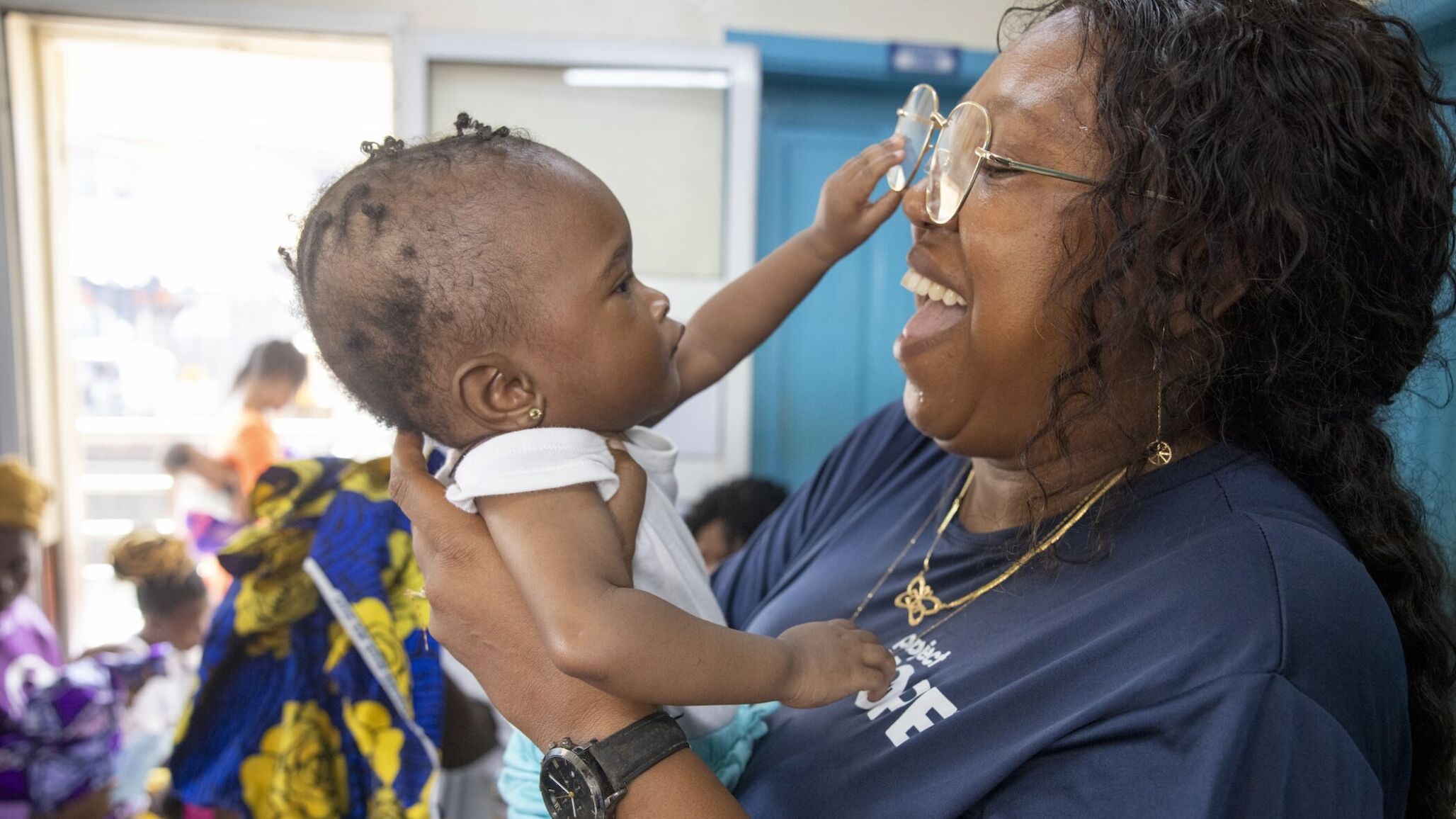In Kherson, ‘Water Is Worth Its Weight in Gold’
Russia’s invasion of Ukraine has compromised one of the most essential building blocks of health: clean water. With support from USAID’s Bureau of Humanitarian Assistance, Project HOPE is bringing it back.
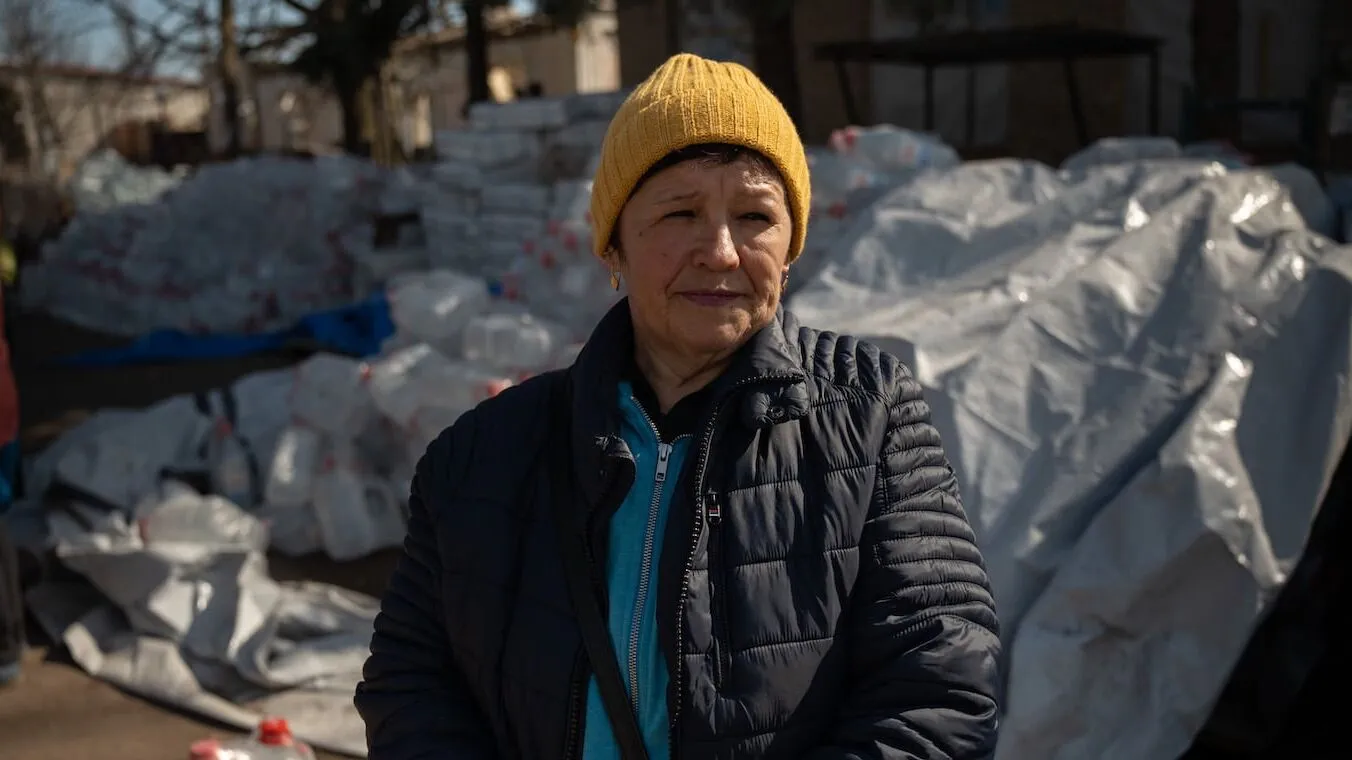
Without water there cannot be life.
Since the start of the full-scale invasion of Ukraine, millions of Ukrainians have had limited access to clean drinking water, especially those living near the front lines. The Russian military has attacked water supply and sanitation facilities, power outages have led to water cuts, and reconstruction has been complicated by the need for generators, pipe fittings, and water treatment systems.
The issue was made even worse after the destruction of the Kakhovka dam on June 6, which the UN has warned could endanger the lives of thousands of people. At least 16,000 people have lost their homes, according to UN numbers, and at least 40 settlements were flooded or partially flooded in the initial days following the dam’s destruction.
The de-occupation of Kherson in November 2022 led to a complicated situation in the city and the rural communities in the region. Before fleeing, the Russian military had damaged the electricity pylons and electrical power substations — and the constant shelling has continued to damage this critical infrastructure since. As a result, some villages have been without power and without access to a centralized water supply. While a few residents have generators, which they can use to pump water from wells for themselves and their neighbors, humanitarian relief was urgently needed.
In February 2023, Project HOPE began working in the recently liberated Kherson region to provide emergency drinking water. Over five months, the team will deliver roughly 3 million liters of drinking water to address this pressing issue in communities with the highest need. This aid is being provided thanks to financial support from Project HOPE and the United States Agency for International Development’s Bureau of Humanitarian Assistance.
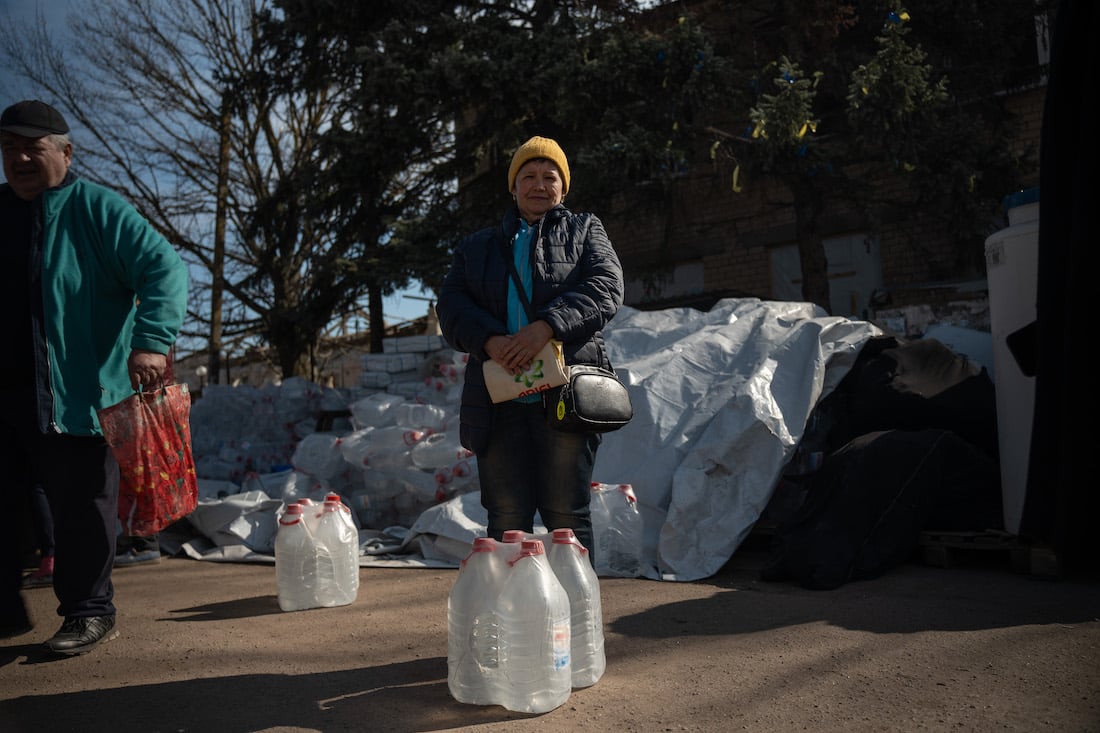
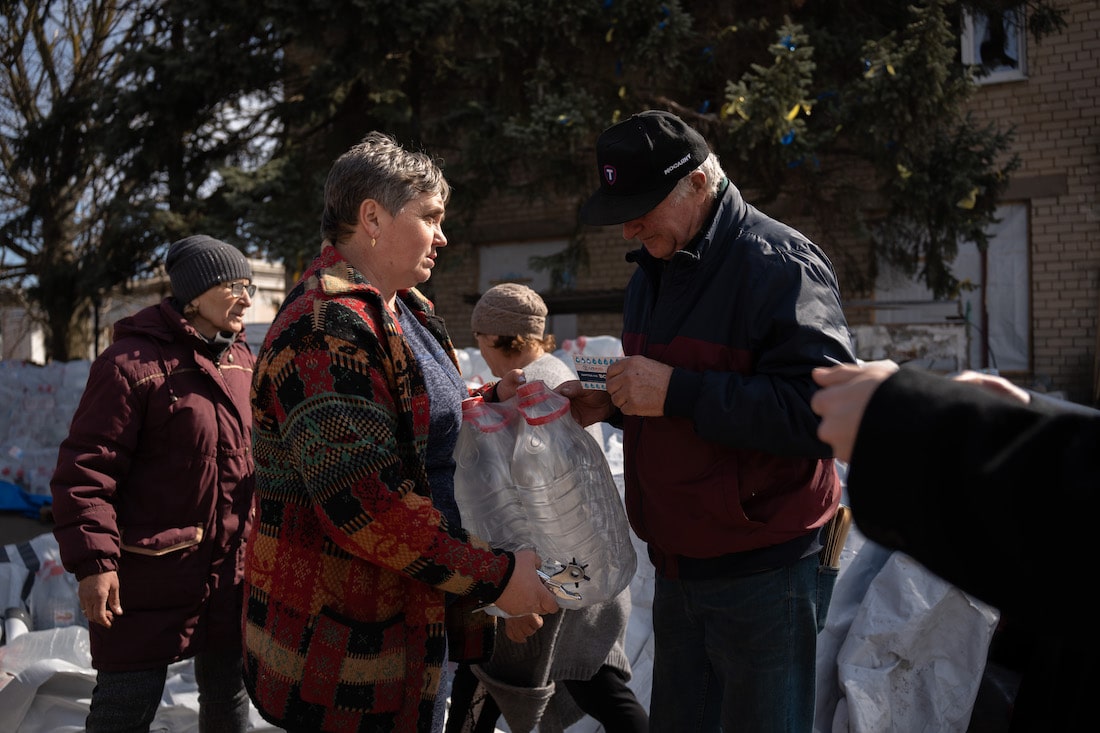
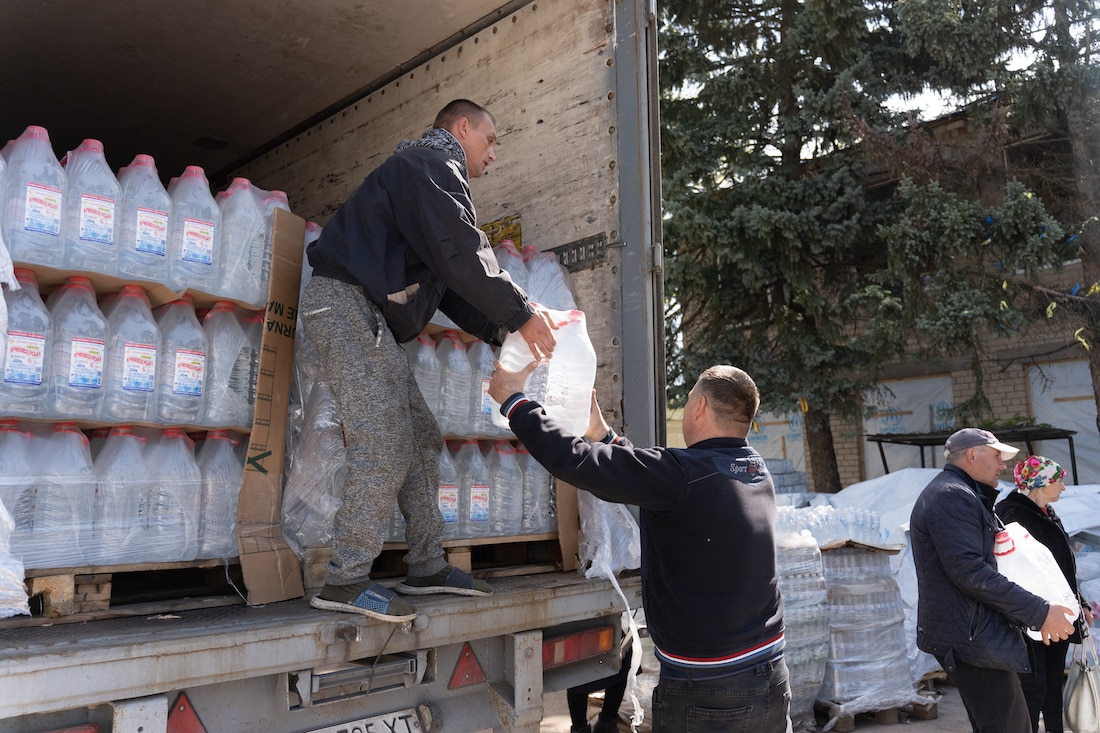
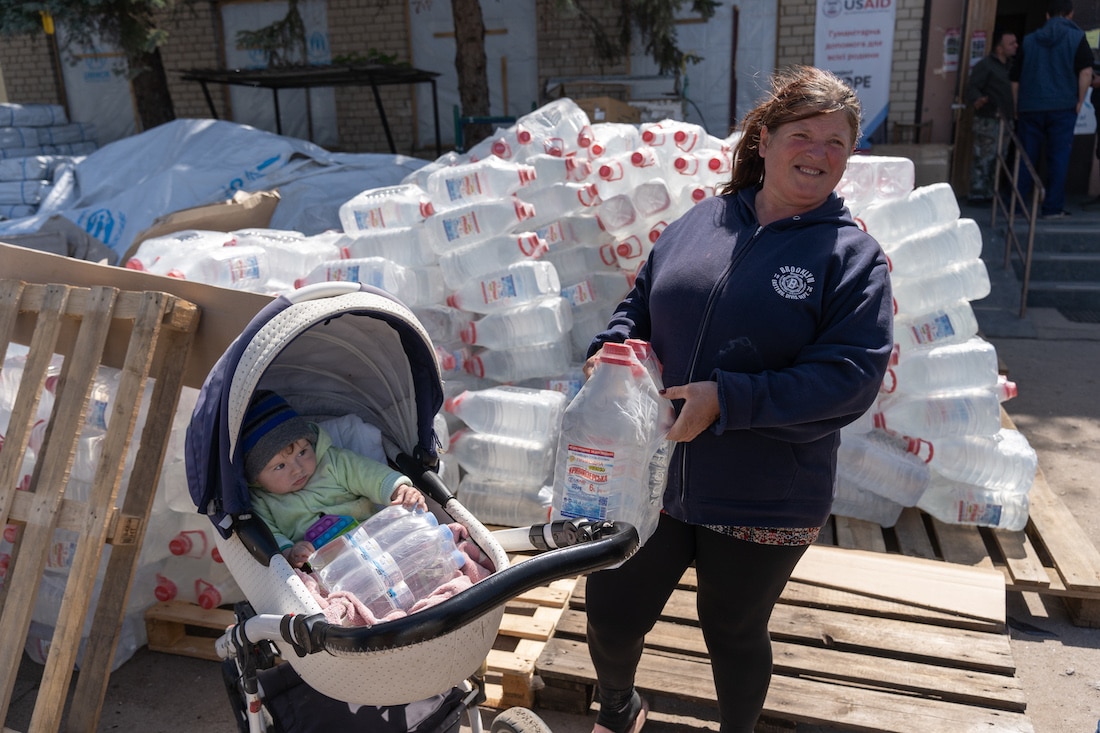
One of the villages Project HOPE is supplying bottled water to is Posad-Pokrovsk in Kherson Oblast. There are 940 houses in this village, 300 of which have been destroyed by constant shelling. Despite the evidence of destruction and the traces of artillery shelling on almost every building, people are feeling hopeful and returning home after long months of being away.
“We are very grateful to the volunteers and everyone involved that you did not forget about us,” said Iryna, who is from Posad-Pokrovske. “Drinking water for us is worth its weight in gold.”
After the full-scale invasion, Iryna and her husband fled their home in Posad-Pokrovske along with other residents and lived in Mykolaiv until Russian forces left Kherson Oblast in November 2022. The minute they heard of Kherson’s liberation, she says, they wanted to go back home.
“We arrived here on November 29,” Iryna said. “Somehow, we still did not believe that we could come home freely. Later on, volunteers started bringing us water. Thank you very much. Without water, it’s like living without hands.”

